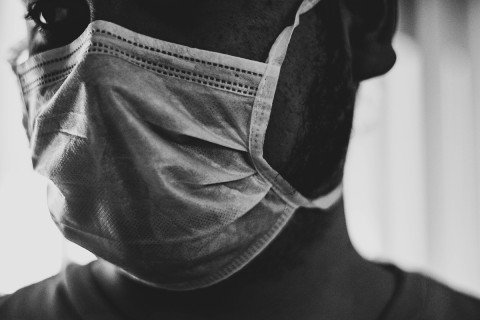Our masks have unmasked us
There is a parable here of half-hidden faces, wounds, and a lack of love.

There is a scene midway through the gorgeous, heartbreaking film Honeyland in which Hatidze Muratova, one of Europe’s last wild beekeepers, carefully removes bandages from her elderly, infirm mother’s face. For the first time, the viewer sees the oozing, bloody wound, the sightless eye. In their dimly lit dwelling on the remote, craggy slopes of northern Macedonia, Hatidze cares for her suffering mother with love and tenderness just as she does the wild bees, even as the two women bicker and provoke each other.
There is a parable here, I think, for what has unfolded so far during the coronavirus pandemic: a story of half-hidden faces, of wounds festering beneath our individual and collective lives, of darkness and a failure of vision, of bickering, provocation, and worse, of love and its lack.
We could not have guessed that wearing a mask, a practice considered so routine and essential in operating rooms and ICUs as to go uncommented upon until this March, would become, as we now say, “politicized.” We may indulge in the puns and pop culture memes about face coverings (my favorite is from The Princess Bride: “I think everyone will be wearing them in the future”), but the jokes mask the pain of this fractious time and the truth that many damaged relationships may never heal.




